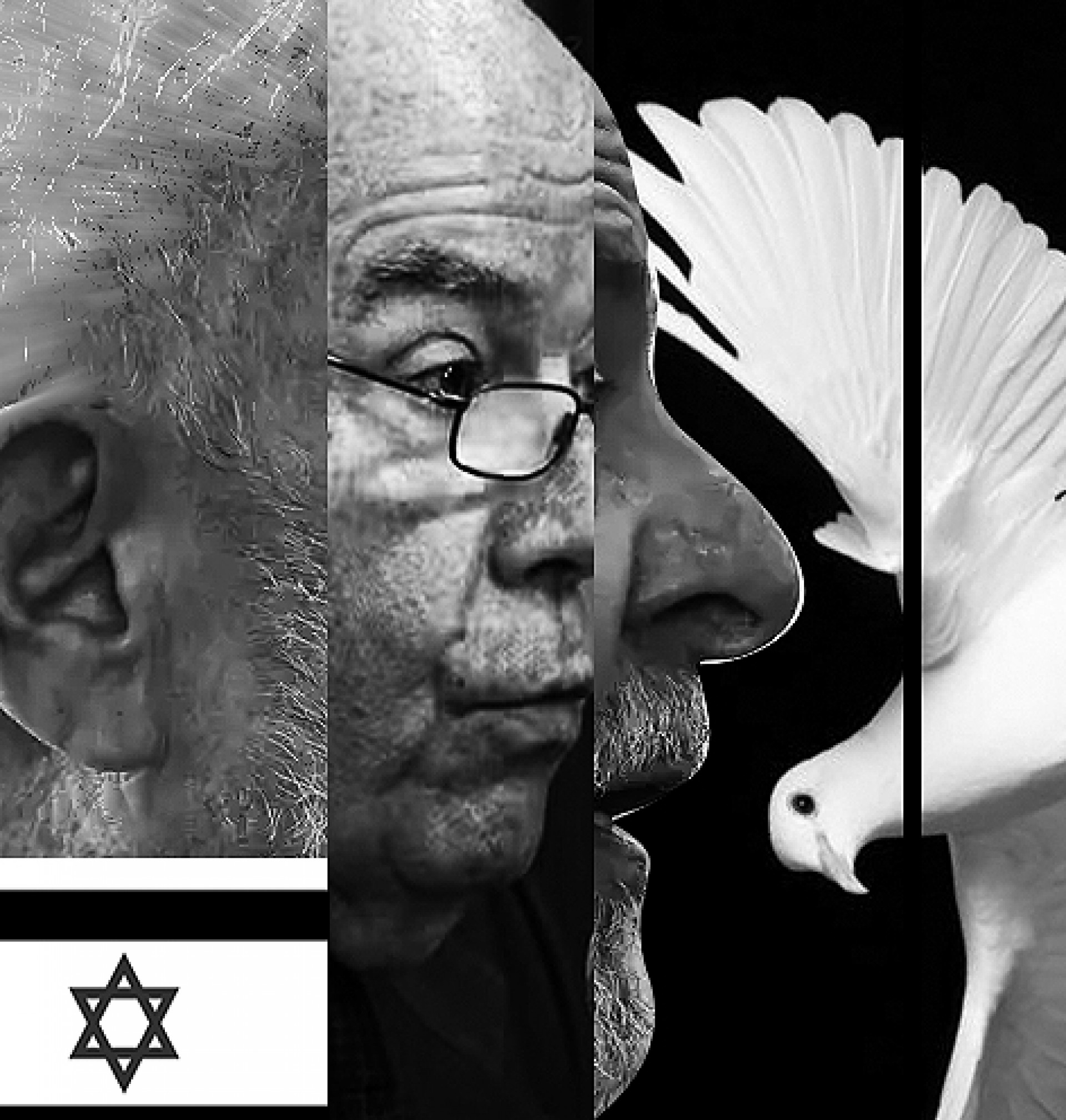William Douglas reproduction
Published 04/26/2024 00:00
After the unfortunate declaration that equated the war with the Holocaust (the Shoah), which has not yet been corrected, the lack of historical correction and exemption has been repeated. We will cite two more recent cases. The first, the statements by the Minister of Foreign Affairs, Mauro Vieira, in the article “Ceasefire and Palestine at the UN, urgent needs”, published in the newspaper “O Estado de São Paulo”, on 2/25/2024. The second, the bias perceived from the comparison between the MRE Notes in the face of Israel’s attack on the building attached to the Iranian Embassy in Syria and the Iranian attack on Israel. Israel’s one-off attack was the subject of words such as “(Brazil) condemns the air attack” and the second, on a much larger scale and which affected civilians, deserved the words “(Brazil) follows with grave concern, reports of sending drones and missiles.” The term “send”, very appropriate for letters, is a regrettable and revealing understatement.
It should be commonplace for authorities to understand the delicate moment and complexity intrinsic to the Middle East conflict. Equally important, the approach must be impartial and balanced, as required by the Brazilian Constitution, seeking fair solutions that promote peace and stability in the region. This, if it occurs, will place Brazil in a position of respect in the international community. If it does not occur, in addition to violating the Greater Law, it will diminish the credibility and respectability of our country.
It is disturbing and unacceptable to treat the situation with partiality, without taking into account the wishes of the vast majority of Brazilians or the geopolitical implications of the conflict – and, even less so, the failure to comply with the provisions of the Federal Constitution. This lack of neutrality and equality is revealed in seven points.
2. In the article cited, Minister Mauro Vieira reports that some “consensual conclusions emerged naturally”. It is very easy to reach consensual conclusions when talking to only one side involved in a conflict. It would be the same as meeting only with Russia and Belarus or just seeking Ukraine’s opinion and claiming to have reached a consensus.
The minister criticizes what he calls the West’s “double standards”, but fails to understand that he is the one acting with double standards by ignoring the situation of the kidnapped hostages, not visiting Israel, only talking to one side , while criticizing the US for supplying weapons to Israel and refraining from mentioning that Iran provides financial, logistical and weapons support to Hamas, the Houthis and Hezbollah.
3. Among the “consensual conclusions” that emerged, naturally, is that Brazil has a secure place in the debate on Palestine. But the conclusion of the visited countries about our country comes more from Brazilian partiality in favor of them, than from an effective contribution to alleviating or reaching a formula that allows the conflict to end. One gets the impression that this position of “relevance” is sought more out of vanity and the need for reaffirmation than as a result of coherent analysis. If the real interest is to promote peace, Brazil will only be relevant if it obtains the trust of both sides, something evidently unfeasible at the moment, due to the absolute lack of neutrality demonstrated so far.
4. The MRE mentioned 6 thousand Palestinians of Brazilian origin living in the West Bank and 22 thousand Brazilians and descendants living in Lebanon, 4 thousand of them on the border with Israel. Great to know! However, the MRE failed to say how many Israelis of Brazilian origin live in Israel. It remains to be said how many Brazilians and their descendants are in the border area with Lebanon and were displaced because of Hezbollah missiles. It was still necessary to ask Iran and Hezbollah to stop attacking civilian targets in northern Israel. The counting and mention of the number of Brazilians in the West Bank and Lebanon combined with the silence about those who live in Israel is symbolic and revealing. Would it be a case of considering predilection, impartiality or even a failed act of anti-Semitism? These are urgent and necessary reflections.
5. In the same article, the minister celebrates Brazil’s leadership position and that the country is “very welcome”, but does not note that it has become persona non grata for the other side of the conflict. Who can obtain mediator status in this way? Brazil would have much more credibility to mediate the negotiations if it finally asked Iran, or Hamas, for the Red Cross to visit Brazilian Michel Nisenbaum, kidnapped by terrorists and held hostage in Gaza for six months. Or if he demanded an end to missile attacks and stabbings against civilians in Israel, if he apologized for the grotesque comparison between the situation on the strip and the extermination of 6 million Jews, or even if he convincingly lamented the loss of Brazilians Carla Stelzer, Ranani Glazer and Bruna Valeanu in the 7/10 terrorist attacks. After the recent Iranian attack on Israel, Hezbollah once again attacked civilians in the north of the country, causing casualties, and, once again, without demonstrations of repudiation of the MRE.
6. The article talks about civilians in Gaza, the West Bank, Syria and the border with Lebanon, but maintains an embarrassing silence about the hostages, including civilians, women, children, babies and the elderly. Very rare sporadic and rhetorical mentions for these, and constant mentions for the Palestinian victims, say between the lines that “the hostages do not exist” or “are less valuable” for the MRE. In the case of the massive Iranian attack, an Israeli Bedouin girl was seriously injured. Is it valuable?
7. Finally, Brazilian diplomacy contradicts itself by defending a two-state solution, by asking for the recognition of Palestine by the UN and not simultaneously asking Arab countries to recognize Israel. This is, therefore, hypocrisy in one of the most glaring diplomatic failures of the Republic.
It is worth remembering that, in 1967, Israel offered the Gaza Strip, the Sinai Peninsula, East Jerusalem and the West Bank in exchange for peace. On that occasion, the leaders of the Arab League, meeting in Sudan, announced the “Principles of the Three No’s”: “No” to Peace, “No” to negotiations with Israel and “No” to the recognition of Israel.
The inevitable conclusion is that Brazilian conduct violates:
a) the minimum common sense of those who want to play a relevant role and as a mediator, consistent in dialoguing with both sides;
b) the duty of honesty in relation to historical facts and events on the Gaza-Israel-Lebanon borders;
c) the tradition of balance and equidistance in Brazilian diplomacy;
d) the principles of article 4 and article 19, III, of the Federal Constitution;
Note the express violation of article 19 of the Constitution, which establishes that “the Union, the States, the Federal District and the Municipalities are prohibited from creating distinctions between Brazilians or preferences between them”. Palestinian Brazilians are receiving different and privileged treatment in relation to to Jewish Brazilians. This preference for some over others affects equality, a basic principle of the Republic. We want, and the Constitution requires, that everyone be treated equally well.
Finally, it is also necessary to reflect on the theoretical existence of crimes of responsibility, as defined by Law no. 1,079. In its article 5, the law states that “committing an act of hostility against a foreign nation, exposing the Republic to the danger of war, or compromising its neutrality” and “concluding treaties, conventions or adjustments that compromise the dignity of the Nation”. Neutrality is a principle that cannot be abandoned, especially when one side systematically practices rape, kidnapping and terrorism.
The conversations and visits, that is, the “adjustments” made with only one side, the mentions and Notes in inexplicably different terms and frequency, the preferential treatment with Palestinian civilians and discriminatory treatment with Israeli civilians compromise the dignity of the nation and its credibility in the international scene. The entire work reveals hostility towards Israel and leniency towards terrorists and Iran, which finances them. This compromises the country’s neutrality and equal treatment among Brazilians, obligations imposed by the Constitution and the Responsible Crimes Law.
Nelson Mandela, who inspires Brazilian leaders so much, should be remembered at this moment. He taught that “as a movement, we recognize the legitimacy of Palestinian nationalism, just as we recognize the legitimacy of Zionism as a Jewish nationalism. We insist on the right of the State of Israel to exist within secure borders, but with equal vigor we support the Palestinian right to national self-determination.”
Brazil’s actions on this matter must be guided by the Federal Constitution, whose rules are not optional. They exist and are valuable to us.
* William Douglas, professor of Constitutional Law and writer


